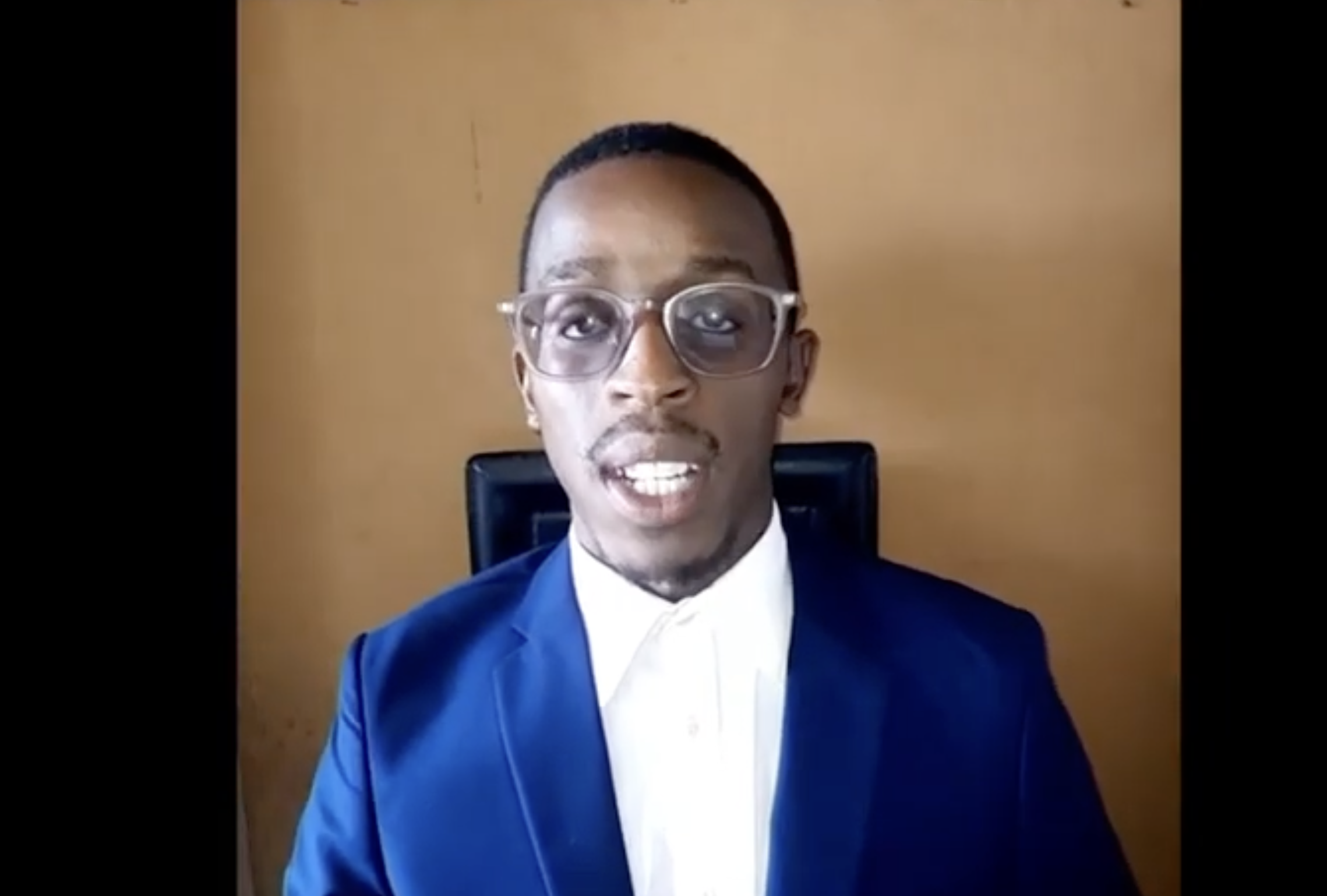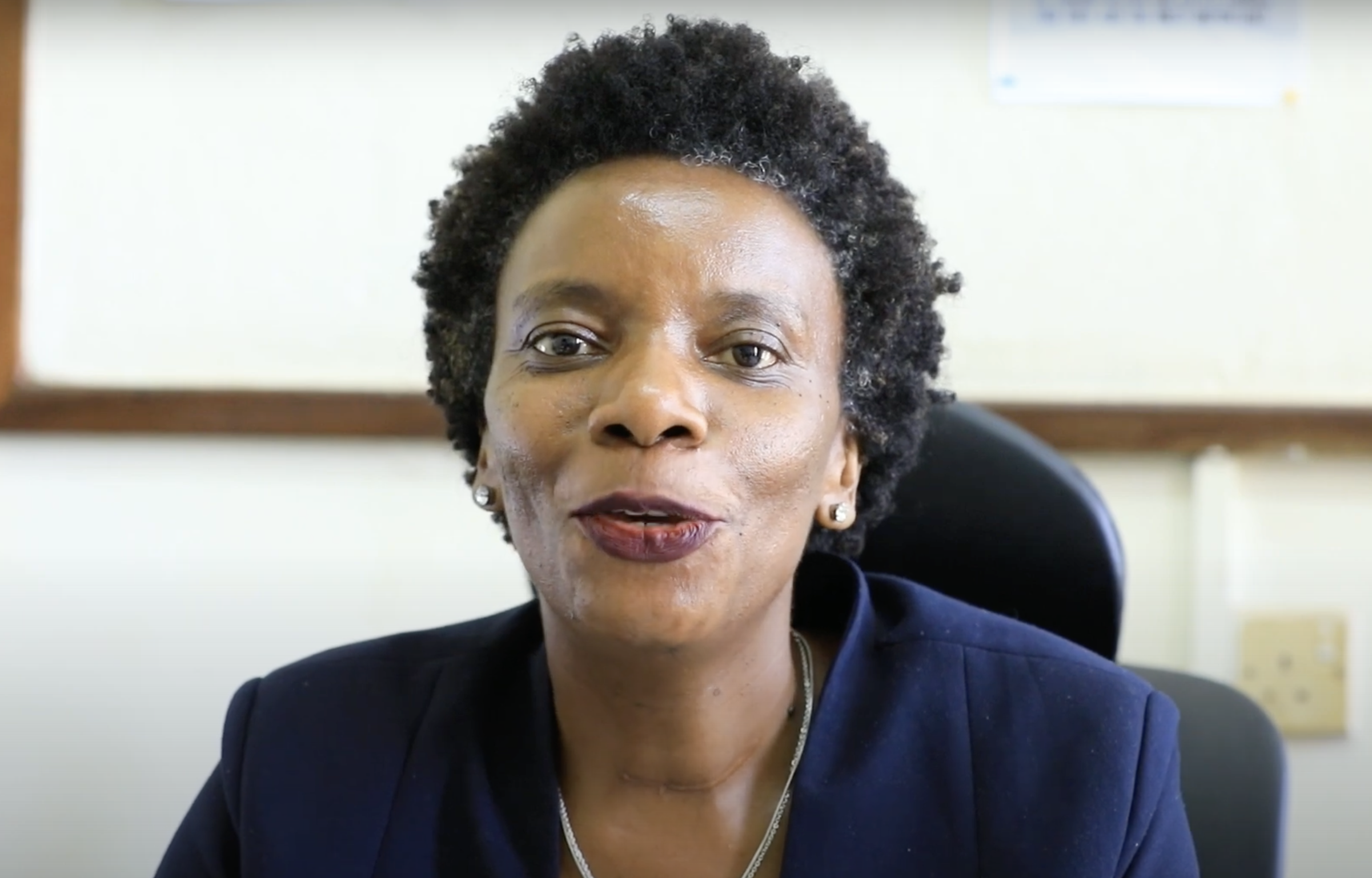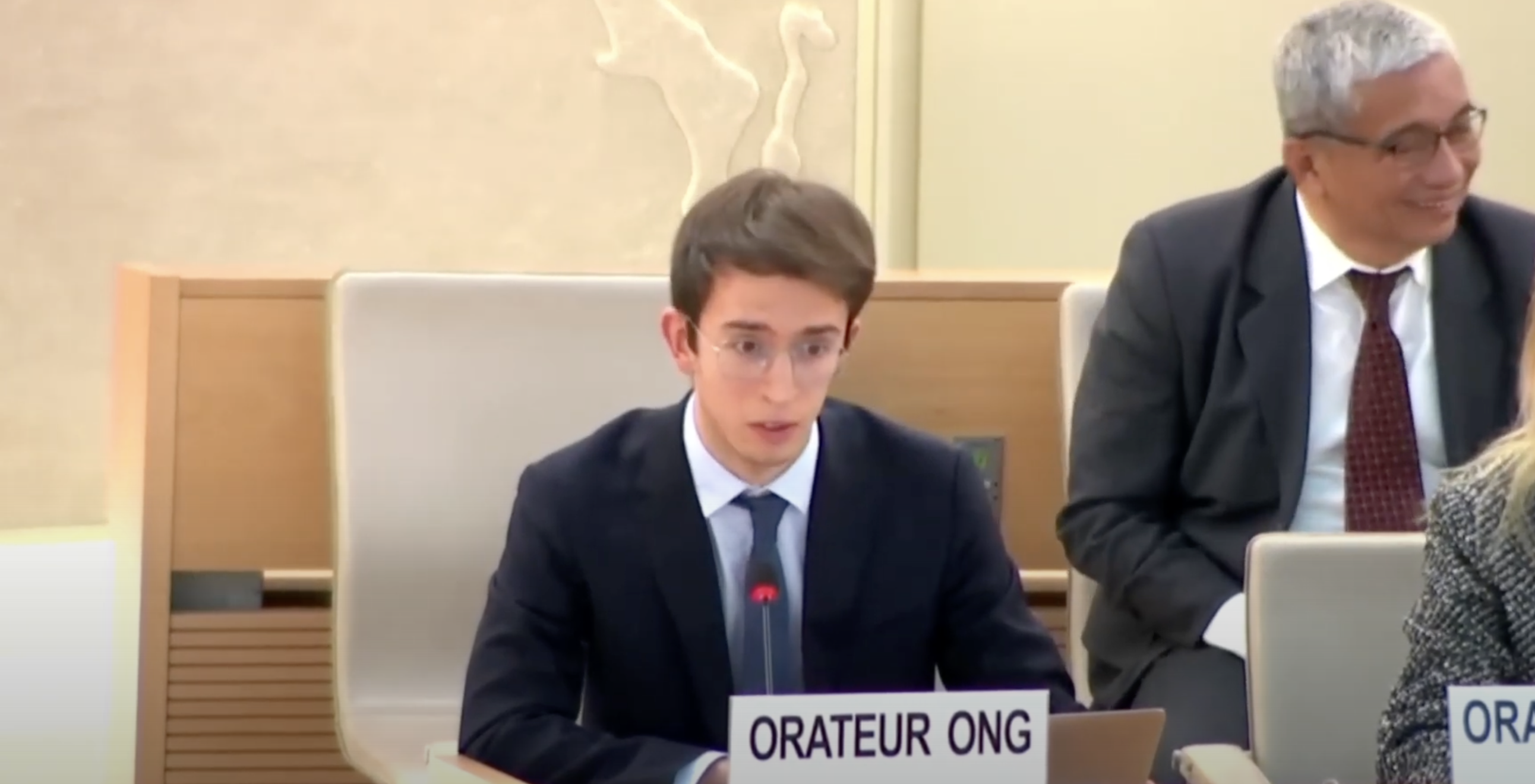2 Oct 2013
The Human Rights Council: Challenges and Opportunities

Yanet Bahena, GICJ Special Procedures and Reporting Section
For millions around the world, the United Nations represents hopes of peace, development and the fight for the advancement and protection of the most fundamental of human rights. Under the UN system, this fight for human rights is undertaken by the Office of the High Commissioner for Human Rights (OHCHR), presently headed by Ms. Navi Pillay, and more specifically, the Human Rights Council (HRC). The HRC, which replaced the former UN Commission on Human Rights, was created by the UN General Assembly on 15 March 2006 and held its first session in June 2006. Comprised of 47 UN Member States, the Council is tasked with addressing situations of human rights violations and making recommendations on them. This task is predominantly undertaken during the HRC sessions.
On 9 September 2013, the Human Rights Council convened for its 24th session, which adjourned on 27 September. As is customary, the opening of the session was marked by the presentation of the High Commissioner’s report. With over 100,000 casualties to date and the confirmation of the use of chemical weapons, Syria was the first issue addressed by High Commissioner Pillay. She stated that the International Community was “late, very late, to take serious joint action to halt the downward spiral that has gripped Syria..” and reiterated the urgent need for international action and for the warring parties to be brought to the negotiating table.
But how do you get them to the negotiating table? High level meetings have taken place around the world, particularly after the use of chemical weapons was made public and confirmed, but a solution has yet to be found. The UN and its Member States have come under heavy criticism for their inability to unite under a plan with tangible results and in the meantime, people keep dying.
From the appalling situation in Syria, Commissioner Pillay moved to other serious situations requiring urgent attention by the Council and the International Community, including: the violence that continues to plague Egypt; Israel’s unrelenting policy of forced evictions and demolitions, and Israeli security forces’ use of excessive force against Palestinian civilians. Ms. Pillay also spoke of the continued executions being carried out in “batches” in Iraq, and of the “new wave of violence” assaulting human rights in the country.
For three weeks the HRC listened to reports by experts, special representatives, special rapporteurs and civil society on human rights violations occurring around the globe. Member and observer States partook in the dialogue and provided their input and observations. Outside Council doors, side events took place on a daily basis and in what may be considered one of the most critical aspects of these sessions, Member State delegations worked to negotiate and draft resolutions. It is in these resulting resolutions that the Council´s most tangible work takes form and where the will for, and effectiveness of dialogue and cooperation are put to the test.
By the time the President of the Council officially adjourned the 24th session, 40 texts had been adopted. Having achieved the adoption of 40 texts would seem to mark a success by many standards, but is it? After three weeks of dialogue, presentations, negotiations and voting, do those on behalf of whom all this is said to be done really see a difference or improvement in their lives, or does it all become part of the empty promises and bureaucracy that the UN is so often accused of?
The answers to these questions lie not in what actions are taken during these HRC sessions, but in those that are, or of greater importance, are not taken in their aftermath.
During this latest HRC session the International Commission of Inquiry on Syria (COI) presented their report of the horrendous violations occurring and on the final day of the session, a resolution on Syria was adopted condemning the on-going massacre and requesting that the Syrian authorities “cooperate fully” with the COI and that they be granted “immediate, full and unfettered access throughout the country.” These would be small, but positive steps forward, if they ever actually occur. With accusations from the Syrian ambassador that the resolution was “biased”, the prospects do not look promising.
With regards to Palestine, attempts to undermine Agenda Item 7 (Palestine) have led to decreased dialogue and participation at every passing session. Member States and civil society persistently condemn actions by Israel such as the continued building of settlements and their continued absence at these sessions, as well as its lack of cooperation with the HRC, but yet the Council has never taken action or imposed consequences on Israel for these failures despite numerous calls to do so. Holding Israel´s Universal Periodic Review, due to take place this October, despite its adamant refusal to participate would be a significant first step by the Council. In a few weeks’ time we will know if it made the right decision or not.
Madam Pillay called on the Iraqi authorities to “do the utmost to protect all people in Iraq”, but to the misfortune of the Iraqi people, this is unlikely to happen any time in the near future. Iraqis continue to die and suffer every day and those responsible for the destruction of all these lives and the country remain free from any form of accountability and most importantly, from the reach of justice. Achieving accountability and justice for the people of Iraq will require much more than a call on the authorities to protect its citizens. Concrete action must be taken by the UN and the International Community, and this action cannot be confined only to the present authorities. To be truly just, it must go back and be applied to all perpetrators, starting with all those who chose to ignore the United Nations and international law by waging an unlawful war.
Reports of suffering and human rights violations; debates on what can be done to stop them; condemnations towards the perpetrators; calls for action, and recommendations and resolutions seeking solutions; these are all end products of HRC sessions. Debates that can go on indefinitely without a winner; condemnations that are refuted by those accused; calls for action that may never materialize; recommendations that may or may not be accepted and implemented, and resolutions that at the end of the day are not binding but mere recommendations.
Human rights are under attack in all corners of the world. Every second, somewhere, men, women and children are being subjected to horrendous human rights violations and inhumane conditions. The United Nations and the Human Rights Council do not have an easy task at hand, but progress is being made. However, real progress takes time and in the meantime, the suffering continues. In Iraq, in Syria, in Palestine and all over the world, innocent civilians pay the ultimate price for the International Community’s failure to take notice, swift action or come to a consensus.
But what are the alternatives? The United Nations was created precisely to avoid and deter States from taking matters into their own hands and to “combine our efforts” to accomplish certain conditions and aims for all mankind. These can only be realistically achieved, justified, and sustained when they are undertaken within the realms of cooperation, dialogue and diplomacy. When it comes to human rights, the Human Rights Council serves as the venue for this dialogue and diplomacy. It must ensure however, that dialogue is not where it stops.
Words, when not followed by concrete action, become meaningless. Promises and agreements without implementation, enforcement and accountability will not stop conflicts, solve crises, or protect those most in need. As Civil Society actors, we too must uphold our responsibilities and ensure that we continue to be part of this dialogue by actively reporting on violations and making our voice and that of victims around the world heard during these sessions. Progress is slow, but with continued diligence, sacrifice and will, it can be achieved.
Participation of GICJ at Human Rights Council Sessions
Human Rights Council - 35th regular session (6 June - 24 June 2017)
Human Rights Council - 34th regular session (27 February - 24 March 2017)
Human Rights Council - 33rd regular session (10 September - 30 September 2016)
Human Rights Council - 32nd regular session (13 June - 1 and 8 July 2016) Human Rights Council - 31st regular session (29 February - 24 March 2016)
Human Rights Council - 30th regular session (14 September - 2 October 2015) Human Rights Council - 29th regular session (15 June - 3 July 2015) Human Rights Council - 22nd special session on the human rights situation in Iraq in light of abuses committed by the Islamic State in Iraq and the Levant and associated groups - 1 September 2014: Human Rights Council - 21st special session on the human rights situation in the Occupied Palestinian Territory, including East Jerusalem - 23 July 2014: Human Rights Council - 26th regular session (10 - 27 June 2014): Human Rights Council - 25th regular session (3 - 28 March 2014): Human Rights Council - 24th regular session (9 - 27 September 2013): Human Rights Council - 23rd regular session (27 May - 14 June 2013): Human Rights Council - 22nd regular session (25 February - 22 March 2013): Human Rights Council - 21st regular session (10 - 28 September, 5 November 2012): Human Rights Council - 19th regular session (27 February - 23 March 2012): |
||












